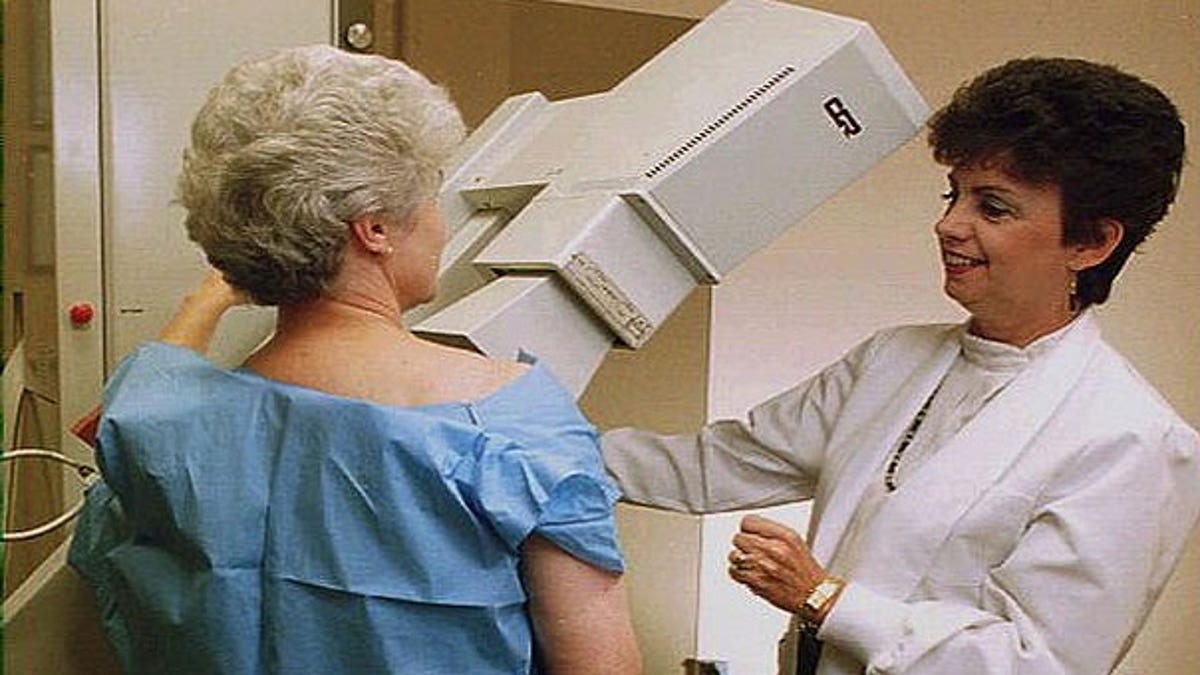
Women childhood cancer survivors are encouraged to screen for breast cancer regularly. (AP)
Some lawmakers on Capitol Hill are blasting new guidelines from a government task force that recommends against routine mammograms for women under 50, questioning whether they are tantamount to health care "rationing" in the fight against the No. 2 cancer killer in U.S. women.
"I absolutely believe this could be a form of rationing," said Rep. Phil Gingrey, R-Ga, a practicing obstetrician and gynecologist for 26 years. "It scares me."
Gingrey told FoxNews.com on Tuesday that he and other lawmakers are gravely concerned that insurance companies will seize upon the new guidelines to deny mammogram coverage for women under 50.
"Early detection is hugely important," Gingrey said, noting that breast self-exams are critical in looking for cancerous tissue masses.
The new government recommendations, released Monday by the Preventive Services Task Force of the Department of Health and Human Services, recommend against regular mammography tests in women aged 40 to 49. The guidelines also downplay the effectiveness of self-examinations and advise that women aged 50 to 74 years receive mammograms every other year.
The U.S. Preventive Services Task Force, a government panel of doctors and scientists, concluded that such early and frequent screenings often lead to false alarms and unneeded biopsies without substantially improving women's odds of survival.
"The benefits are less and the harms are greater when screening starts in the 40s," said Dr. Diana Petitti, vice chairwoman of the panel.
Dr. Eric Braverman, a clinical assistant professor of integrative medicine at Cornell Weill Medical College in New York, also backs the new guidelines, arguing that mammograms are not nearly as effective in detection as some other tests, like MRI's and ultrasounds.
"I'm not impressed by mammograms in general," said Braverman, who called manual examinations a "total failure."
"I support the new guidelines because I think it will lead to better testing. [The ultrasound] is a better screening procedure that's safer and easier and picks up things fast," he said, adding that he thinks women should receive ultrasounds as part of their routine medical exams, beginning at an early age.
But critics of the new rules say ignoring the health risk is not worth it. Breast cancer is the second leading cause of cancer deaths among women and the seventh leading cause of death overall for women.
"For every seven to 10 women that are being overdiagnosed or overtreated, we're saving one woman's life and I think for me that's worth it," said Dr. Cynara Commer, a professor of surgery at Mt. Sinai's Surgical Oncology Department in New York.
"That's worth finding that one cancer at early stage as opposed to late stage, and the argument that this is saving cost is sort of irrelevant because if we end up finding cancers at later stages, those women have to go much more aggressive treatment," Commer added.
Kathleen Lederer, 56 of Houston, Texas, first detected her breast cancer through a self-examination when she was 39-years-old. Lederer alerted her physician, who found after performing a mammography, sonogram and biopsy that she had cancer.
"I would be dead if I waited until 50," Lederer told FoxNews.com, adding that she was "horrified" by the government's latest guidelines.
"Is this just a way to start cutting costs for government-run health care?" she asked.
Rep. Bill Cassidy, R-La., said the new guidelines may discourage a number of women from seeking necessary preventive screening.
"The concern is that many people are not complying now with what is currently recommended," he said. "There is a potential that this is going to confuse women and make them less likely to be treated.
"I prefer to think that this is just not a conspiracy to save costs," Cassidy added.
"We've spent years educating women and the public to do this early detection and now we've just taken a 180 and turned the other way," added Rep. Phillip Roe, R-Tenn, a retired obstetrician and gynecologist who stressed that some of the most aggressive cancers are found in younger patients.
For most of the past two decades, the American Cancer Society has recommended annual mammograms beginning at 40, and it reiterated that position on Monday.
"This is one screening test I recommend unequivocally, and would recommend to any woman 40 and over," the society's chief medical officer, Dr. Otis Brawley, said in a statement.
Commer said she is very concerned that the new guidelines are the top of a slippery slope toward rationing, and questioned the timing as the Senate is about to vote on health care reforms that could end up containing a so-called public option.
"The government-run insurance companies are definitely going to be using these federal guidelines as opposed to using the American Cancer Society guidelines, and the American Cancer Society is not going along with these guidelines, and we can only hope that the private insurance companies don't follow suit," she said.
"I think it's coming down to saving costs. I don't think we should be doing that at the expense of women," she added.
FoxNews.com's Cristina Corbin and The Associated Press contributed to this report.




